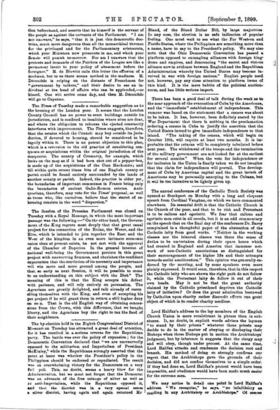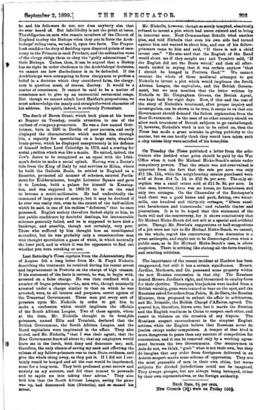We may notice in detail one point in Lord Halifax's
address. "We recognise," he says, "no infallibility as residing in any Archbishop or Arehlriehope." Of coarse be and his followers do not, nor does anybociy else that we ever heard of. But infallibility is not the point at issue. The obligation on men who remain members of the Church of Bogland to obey the Bishops when they put in force the Arch- bishops' ruling rests, we take it, upon two facts. The Prayer book confides the duty of deciding upon disputed points of cere- mony to the Primate in each Province, and the ordination vows of the clergy oblige them to obey the "godly admonitions" of their Bishops. Unless, then, it can be argued that a Bishop has no right to order obedience to the Archbishops' decisicms, we cannot see haw disobedience is to be defended. If the Archbishops were attempting to force clergymen to profess a belief in a doctrine which they considered false, the clergy- men in question meet, of coarse, disobey. It would be a matter of conscience. It cannot be said to be a matter of conscience not to give up an unessential ceremonial usage. But though we cannot admit Lord Halifax's propositions, we must acknowledge the manly and straightforward character of his address. Its spirit, indeed, is curiously Protestant.



































 Previous page
Previous page